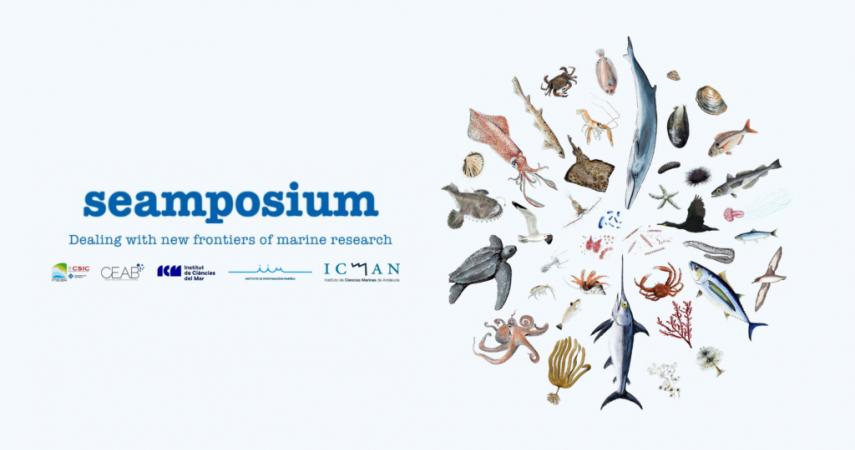Winners, losers and shifts of the pelagic ecosystem in the western Mediterranean Sea: integrating knowledge and projecting trajectories of change
Seamposium 2021 | Dealing with new frontiers of marine research

Con motivo de la Década de las Ciencias Marinas impulsada por la ONU (#ODS14) que pretende generar un marco común que garantice que las ciencias marinas respaldan plenamente las acciones para gestionar de manera sostenible los océanos y mares del mundo, y alcanzar así los objetivos de la Agenda 2030 para el Desarrollo Sostenible, los centros de marinos del CSIC: IMEDEA, CEAB, ICM, ICMAN, y el IIM hemos organizado un ciclo de conferencias conjunto titulado “Seamposium: Dealing with new frontiers of marine research” por el cual se crea un Foro de discusión entorno a un seminario mensual realizado por un experto reconocido en diferentes temáticas marinas.
Winners, losers and shifts of the pelagic ecosystem in the western Mediterranean Sea: integrating knowledge and projecting trajectories of change
Nowadays, the single-stock assessment approach is most used for the management of marine resources. However, the dynamics of exploited stocks are influenced by other factors than fishing alone. Environmental and ecosystem dynamics, and economic and social aspects are also highly relevant, and can interact with fishing impacts. These factors are often overlooked when making management decisions.
In particular, small pelagic fish species (SPF) such as European sardine (Sardina pilchardus) and European anchovy (Engraulis encrasicolus) are some of the most commercially exploited species in the NW Mediterranean Sea. They have shown important changes in the last decades in terms of shifts in abundance, biomass, body condition, growth, reproduction and spatial distribution. Different hypotheses have been formed to explain these changes, such as an increase in fishing impacts; changes in environmental conditions that have affected annual recruitment, growth, general conditions of organisms, and planktonic productivity and quality; a recent recovery of pelagic predators; and competition for food with jellyfish or round sardinella (Sardinella aurita). Under three consecutive projects, SPELMED, PELWEB and PELCAT, we aimed at improving and integrating SPF knowledge into a multi-modelling platform to quantify the impacts and project future trajectories of change. We specifically aimed at (1) identifying historical changes of small pelagic fish population traits (e.g. body condition, abundance and distribution); (2) quantifying the ecological and socio-economic consequences of the changes in SPF populations on fisheries, iconic predator species, and ecosystem-wide dynamics, and (3) identifying robust future management options to achieve resilient and healthy SPF populations and a sustainable exploitation under climate change.
During this talk, I will present some of our findings and I will illustrate the importance of an integrated consideration of climatological, environmental, ecological and socio-economic factors when managing exploited resources from an ecosystem-based management perspective. I will showcase the tools that we used to generate and integrate results, ranging from stock assessments to species distribution models and process-oriented ecosystem spatial-temporal models.

